The story that Duke Petar Bojović was a victim of torture by the new communist authorities near the end of his life is quite widespread and often appears in the domestic media on the eve of the anniversary of the duke's death. Still, is there any evidence for her? And, what is the background of the whole event?
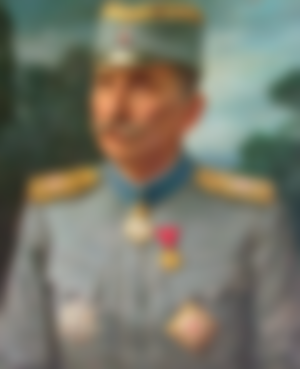
Petar Bojović is another legend from Serbian heroic history. He started his career as a cavalry officer, but with the acquisition of circumstances at the beginning of the 20th century, he joined the infantry. He was the best in the 12th class of the Artillery School of the Military Academy. When his military career took an upward trajectory, he spent most of his time during the wars at the headquarters of the Supreme Command. During the First Balkan War, Bojović stood out the most during the Battle of Kumanovo and Bitola, after which he received the rank of general. After the end of the First Balkan War, at his suggestion, and with the support of Duke Putnik, an alliance was made with Greece, as a counterbalance to the danger that was coming from Bulgaria at the time. In the Second Balkan War, he was the Chief of Staff of the First Army, which won the battle of Bregalnica.
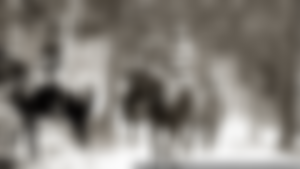
Petar Bojović was a lot of things - a soldier who did not want to get involved in politics, a military leader who did not leave his warriors, a man attached to his family, strict towards everyone, and most of all towards himself, a forgotten hero ... received the rank of duke, was the last to whom this honor was bestowed, and the youngest. Yet in recent years the duke has been most frequently mentioned in connection with the circumstances of his death. According to a story published by local media for years, Petar Bojović became a victim of the new communist authorities and died as a result of the mental and physical torture he suffered after being deprived of his liberty. Is there any truth in this? What does the evidence say and - what is the background of the whole story?
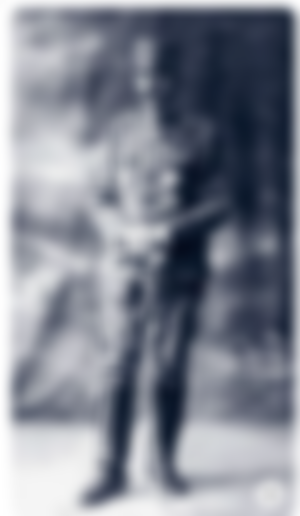
Voluntary self-isolation!
Today, the most valuable direct and authentic historical source regarding the events surrounding Duke Petar Bojović during the Second World War, as well as the circumstances of his death and burial, is the extremely valuable and detailed video testimony of Kosta Rakić, a longtime servant at the Bojović home and later family friend. which was created on January 24, 2018 - says Serbian historian Dejan Ristic and adds that this precious testimony, some 60 minutes long, is an extraordinary and first-class historical source that eliminates possible dilemmas regarding the duke and the relationship with him. Thanks to Rakić's story, we know today that Duke Bojović spent the entire Second World War in his house in Trnska Street in Vračar, partly in some kind of voluntary self-isolation. Namely, after he refused to publicly supported the occupying authorities, a kind of "agreement" was concluded between him and the Germans a German soldier will never cross the threshold of Bojović's home, as long as the duke adheres not to leave his house and the garden around it during the entire duration of the occupation.

In his home, Petar Bojović welcomed the liberation of Belgrade on October 20, 1944 and the arrival of the new authorities. Shortly afterwards, he was summoned to testify and the proceedings lasted a full three days. - This act, completely inappropriate and inadmissible when it comes to a truly great and patriotic such as Duke Bojović, was a humiliating and shameful act in relation to the old, victorious and glorious military leader who was then 87 years old. However, according to Kosta Rakić, "Duke Bojović was interrogated for three days, but no one beat him." Moreover, Rakić clearly and unequivocally rejects the slightest thought of any physical or psychological abuse of Bojović during the three-day interrogation and emphasizes that there were no visible traces of any beatings on the duke, and that he never said that he was the subject of any form of ill-treatment and inappropriate treatment that would include violence against him - Ristic explains, recalling that a full two months passed between the interrogation and the day of Petar Bojovic's death and that the two events could not be directly related.
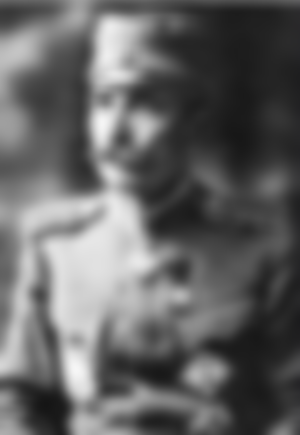
After the interrogation, the duke returned to his home, and according to the testimony of Kosta Rakić, an unpleasant incident occurred in those months - two members of the People's Liberation Army of Yugoslavia broke into Bojović's house, one of whom had officer badges. After they found the old duke, they insulted him, humiliated him and finally stole a sword from which the old man never separated. At one point, the officer reached for the duke's sword, grabbed it, and walked briskly toward the exit of the room. Seeing this, the duke's son Dobrica reacted quickly, catching up with the intruder on the stairs and giving him a strong blow in the area of his face from which he collapsed and fell down the stairs. As soon as he somehow got to his feet, he ran to the front door of the house. Seeing all that, the soldier who was accompanied by that officer ran away from the Bojović family home - says historian Dejan Ristić. On the same occasion, apart from the duke's saber, it seems that the duke's hat also disappeared. Today, both items are missing from the set of Petar Bojović's personal uniform, which is kept in the National Museum in Čačak, and are considered lost.
How did Duke Bojović die?
Duke Petar Bojović died in his house in Belgrade on January 19, 1945. The cause of death, which is stated in the register of deaths at the temple of Saint Sava in Vracar, was "mutual lung failure". He was 86 years old. "What Kosta Rakić emphasized in his testimony refers to the consequences of the intrusion of two members of the Yugoslav People's Liberation Army into Bojović's home, which then caused the duke to visibly shake hands, be in a very bad mood and increasingly refuse to take food. According to Rakić himself, such a psycho-physical state of health of Duke Petar Bojović caused inflammation of both lungs in the following weeks, which, unfortunately, led to the death of the last Serbian and Yugoslav duke. " Petar Bojović was buried in the family tomb at the New Cemetery in Belgrade on January 21 in the presence of an Orthodox priest, in the circle of his closest family and friends. The funeral, from a decent distance, was carefully followed all the time by two men dressed in dark leather coats that everyone present assumed were members of the OZNA. No newspaper, as well as Radio Belgrade, reported the death of the celebrated fighter. Based on this kind of media silence, it could be concluded that the new Yugoslav communist authorities did everything to keep Duke Bojović's funeral out of the public eye as much as possible.
What is an indisputable fact and a deep injustice in this whole story is that Petar Bojović, the last duke from the First World War, was buried without state and military honors. It is completely understandable why the funeral of Duke Bojović, unfortunately, had to be performed without state and military honors, precisely because it was a period of transition between the Kingdom and the new socialist Yugoslavia, both in the state and in the context of the official armed forces. Simply put, in the days of the duke's death and burial, unfortunately, there was no longer a state to which he remained loyal until his last day (Kingdom of Yugoslavia), nor the official armed forces of that country to which he belonged for decades (Army of the Kingdom of Yugoslavia).
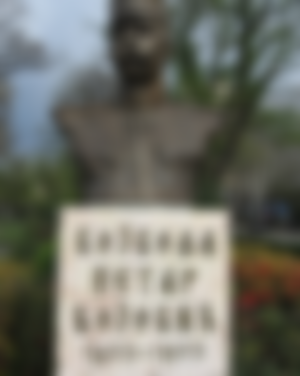
By discovering the bust of Duke Petar Bojović in the center of the city of Niš, the people of Niš are repaying their debt to their famous fellow citizen, but they are also gaining evidence that they are at the forefront of sobering themselves from the delusions into which the Serbian people were drawn by post-war groups of politicians.
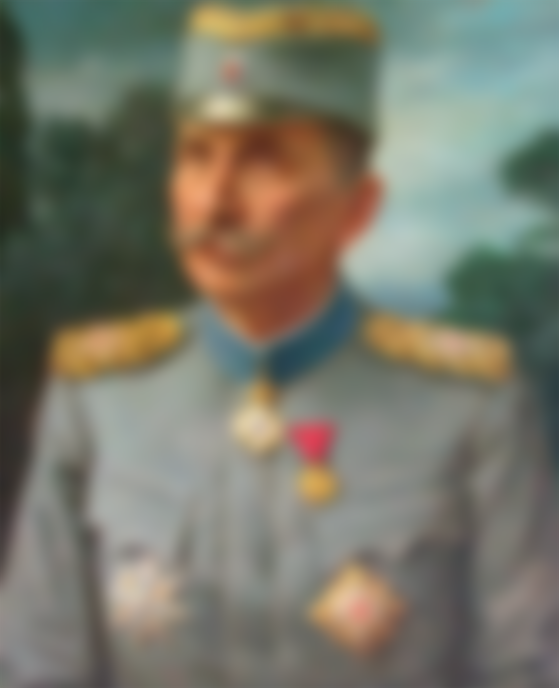
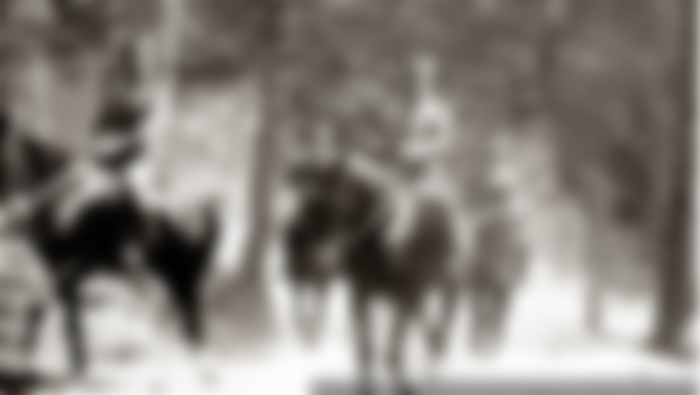
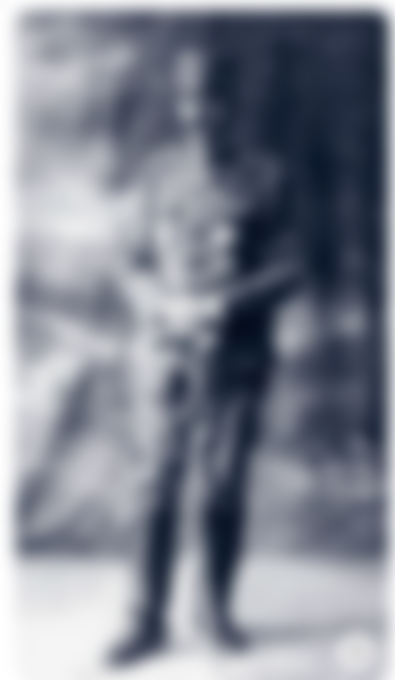
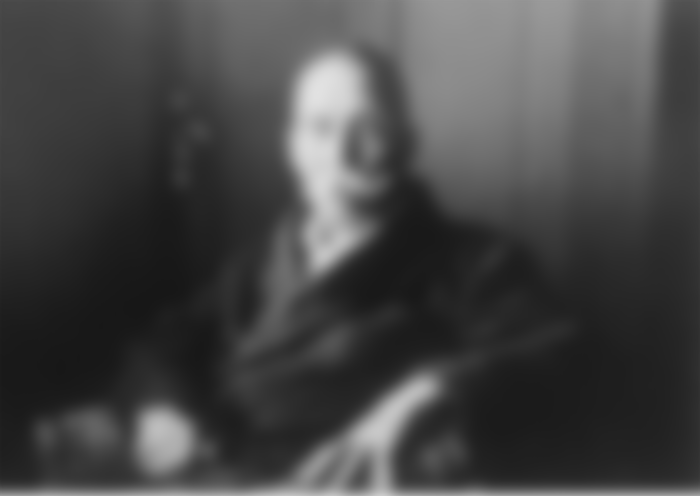
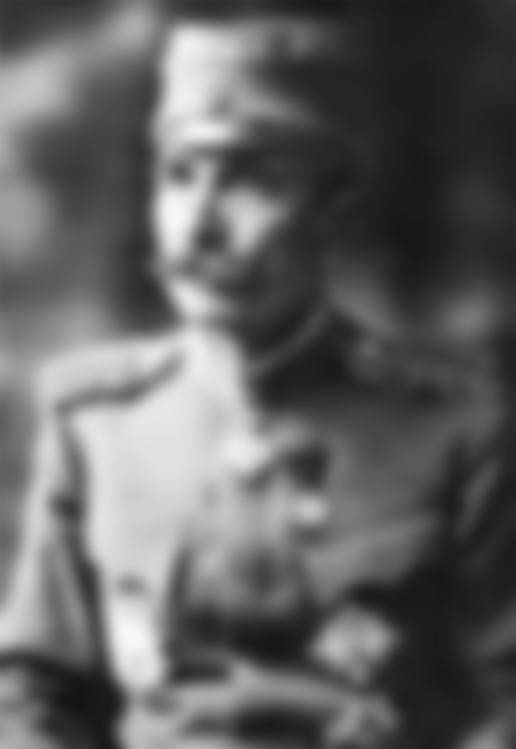
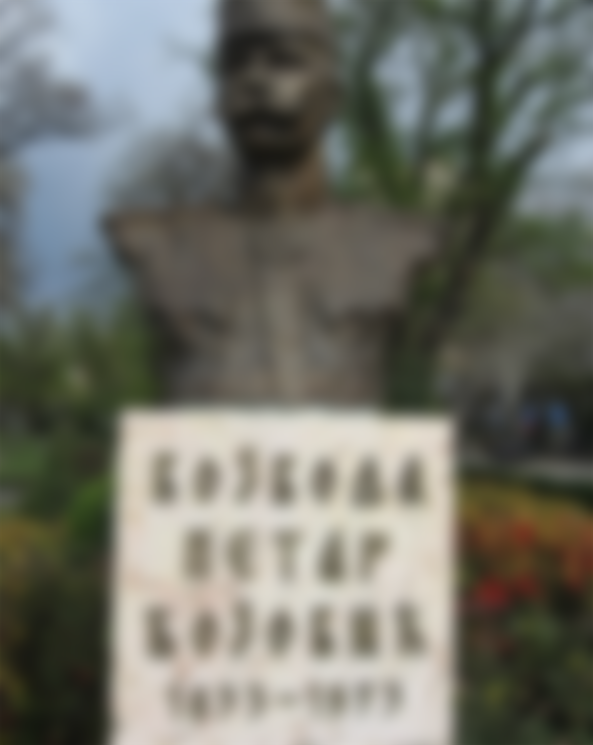
Vojvoda Bojević was brave soldier in Kingdom of Yugoslavia.I like reading such history stories about Yugoslavia.We were living good life then and in country was made order.